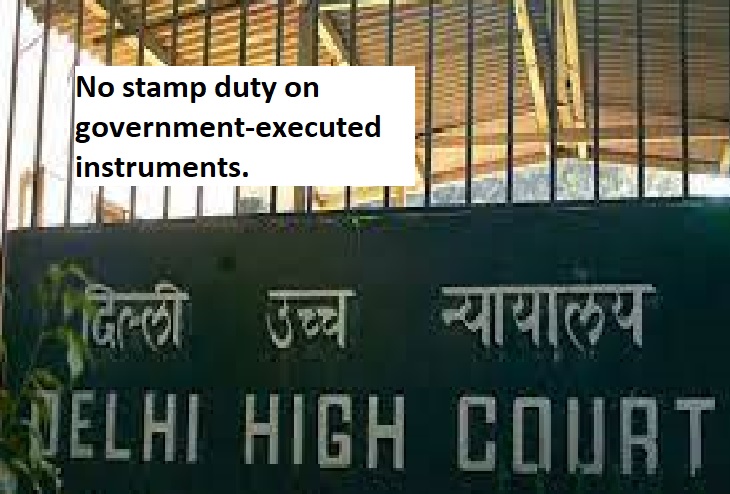


According to a ruling by the Delhi High Court, instruments executed by or on behalf of the government are exempt from stamp duty under Clause 5(c) of Schedule 1A of the Indian Stamp Act (ISA), thanks to the application of Section 3 proviso 1 of the ISA. This decision clarifies that when the government is involved in the execution of any instrument, it falls within the legal exemption from stamp duty, as specified in the relevant sections of the Indian Stamp Act. As a result, such instruments do not require the payment of stamp duty, easing the financial burden on government transactions and agreements. This interpretation aligns with the legislative intent to facilitate governmental processes and transactions.
The Court granted a petition under Section 11 of the Arbitration and Conciliation Act 1996 (Act) to appoint an arbitrator in connection with a dispute concerning a Work Order.
Justice Rekha Palli's bench noted that, as per the proviso (1) of Section 3 of the Act, no stamp duty is applicable to an instrument executed by or on behalf of the Government. In the case at hand, the respondent did not dispute that the work order dated 15.02.2016 was executed on behalf of the Government. Therefore, the court concluded that the petitioner's argument that no stamp duty was required for this work order is valid.
Advocate Avinash Kr. Trivedi represented the Petitioner, while Advocate Shobhana Takiar represented the Respondent in the case.
The Petitioner filed a Writ Petition under Section 11 of the Act, seeking the appointment of an arbitrator to resolve disputes arising from a Work Order. The Respondent argued that the Petitioner had already been compensated, and furthermore, the Petitioner had not first utilized the Dispute Resolution Committee (DRC) process specified in Clause 25 of the General Conditions of Contract (GCC) before pursuing legal action.
The Court noted that the Petitioner, a partnership firm, had succeeded M/s Satya Narain, a sole proprietorship firm, to whom the Respondent had issued a work order. The Court dismissed the Respondent's argument that the Petitioner, as a non-signatory to the work order, couldn't initiate arbitration proceedings.
The Court observed that the Petitioner had formally requested the Chief Engineer of the Respondent to refer the disputes to the DRC. However, the Respondent did not follow through with this request. Consequently, the Court upheld the Petitioner's argument that no stamp duty was required for the work order in question. The Court then appointed a retired Judge of the Delhi High Court as the arbitrator.
As a result, the Court granted the Petition.
TAGS: Court Petitioner Section 11 appointment arbitrator Work Order Respondent compensation Dispute Resolution Committee (DRC)